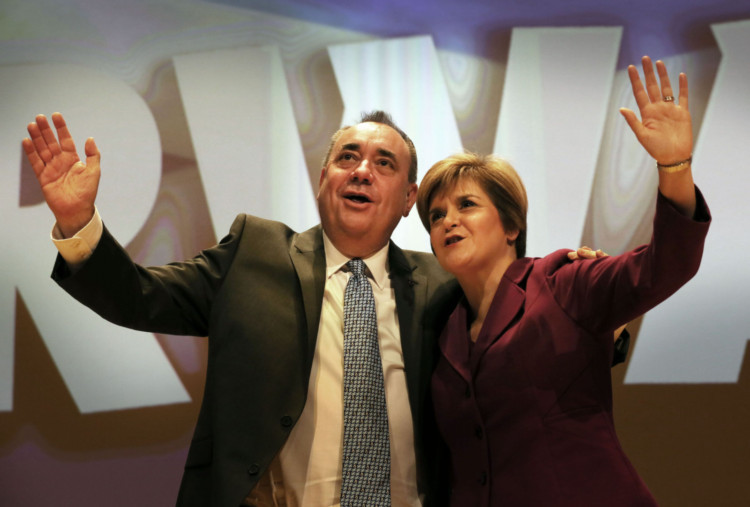
Only the slightly deluded genuinely enjoy Party Conferences. Only lobbyists and journalists get anything meaningful out of these gatherings of the faithful, for they are stage-managed to within an inch of their already rather sorry lives.
Last year’s sparky NATO debate at the SNP shindig in Inverness was the exception that proved the rule. The party leadership decided to live dangerously for a few hours and allow open debate. The result was two resignations and a lot of anger, but they still got their way.
This year has been a study in tedium. Most speeches and “debates” (in the loosest possible sense) have repeated the same old stuff about next year’s referendum being about a choice of two futures, the only option, and so on.
Disinterested observers were left with the impression that the Nats were playing it safe while indulging in wishful thinking about what the polls, after more than a year’s campaigning, are actually telling us.
Thus Alex Salmond and Nicola Sturgeon reheated embarrassingly tenuous talk about there being a “natural majority” for independence (that, you’ll understand, isn’t the same as an actual majority). MP Pete Wishart helpfully informed a fringe meeting that polls were “meaningless”.
But that didn’t stop the party sending journalists a polling factsheet designed to give the impression there was everything to play for on the eve of Conference. It didn’t look terribly convincing you can’t wish away a consistent “No” lead with a press release.
The truth is that on its raison d’tre, the SNP has simply run out of new and compelling things to say. Independence has been a credible proposition since the late 1960s, so there are few killer soundbites or arguments to deploy, thus the sound of a broken record in Perth.
At least last month’s Conference merry-go-round in Glasgow, Brighton and Manchester delivered something tangibly fresh, be it Nick Clegg’s promise of free school lunches, Ed Miliband’s (supposed) lurch to the left or David Cameron’s slightly panicky response.
The First Minister’s Conference rhetoric rarely rises to the occasion. He’s been giving a variant of the same speech for nigh on 20 years and this year delegates were treated to no fewer than three addresses. I suspect those in attendance will remember next to nothing of them. But then Mr Salmond is a variable performer, inspirational at election time, inclined to phone it in when he’s not up against it.
There’s also a slightly detached air, an aloofness underlined by his rather swanky conference berth Gleneagles.
He does, however, understand the importance of momentum. Only this year using Conference to that end proved rather difficult. The First Minister, as one aide put it to me a while back, likes to have “something to give delegates” that is a policy announcement or a goodie to fire them up.
Next week’s Dunfermline by-election made that tricky, for there was a suggestion that the much-anticipated “Independence Prospectus” (or White Paper) might have been unveiled in Perth this weekend.
Instead the First Minister must be hoping that victory for former MSP Shirley-Anne Somerville in Dunfermline will, like the recent Aberdeen Donside by-election, confirm the SNP (if not independence) remains buoyant.
Word is it’s very close, while Labour acquaintances of mine are surprisingly gloomy. If the SNP doesn’t win then all eyes will be on the White Paper, expected in late November (St Andrew’s Day?), to provide the fillip the pro-independence side badly needs.
But there’s also a danger, for this document has been dangerously over-hyped by some ministers. If it doesn’t include everything from energy bills to the answer to life, the universe and everything, then opponents will be all over it.
And even if it does dazzle with its eloquence and comprehensiveness, Unionists will just say it’s pie in the sky nonsense. So, even on this front, the “Yes” lobby can’t really score a palpable hit.
Still, if anyone has withdrawal symptoms there’ll be a mini-SNP Conference next spring. But that, like this one, will be a bad way of gauging how things are actually going, because the party faithful are hardly the best judges of political reality.

Enjoy the convenience of having The Sunday Post delivered as a digital ePaper straight to your smartphone, tablet or computer.
Subscribe for only £5.49 a month and enjoy all the benefits of the printed paper as a digital replica.
Subscribe